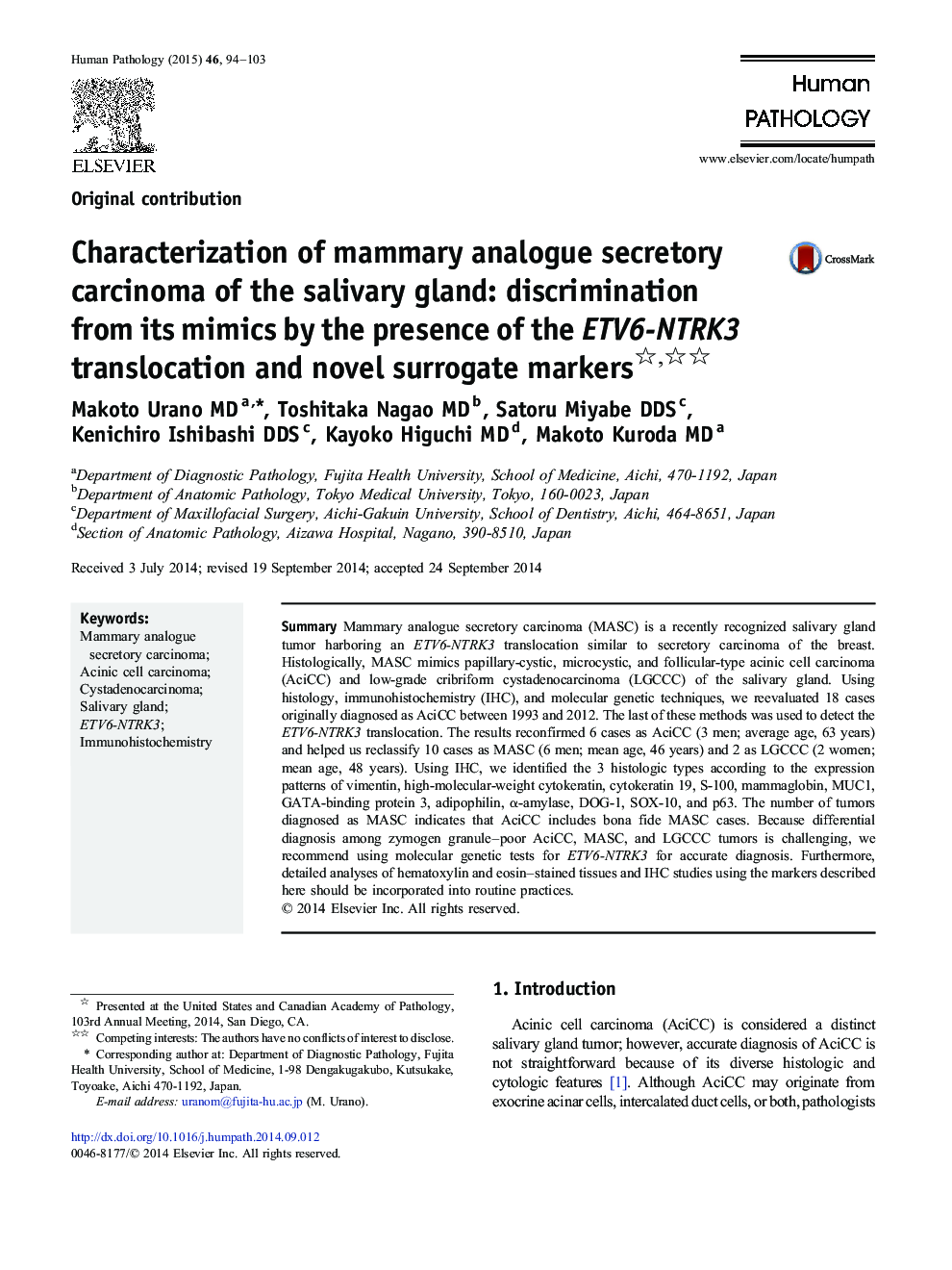| Article ID | Journal | Published Year | Pages | File Type |
|---|---|---|---|---|
| 6215593 | Human Pathology | 2015 | 10 Pages |
SummaryMammary analogue secretory carcinoma (MASC) is a recently recognized salivary gland tumor harboring an ETV6-NTRK3 translocation similar to secretory carcinoma of the breast. Histologically, MASC mimics papillary-cystic, microcystic, and follicular-type acinic cell carcinoma (AciCC) and low-grade cribriform cystadenocarcinoma (LGCCC) of the salivary gland. Using histology, immunohistochemistry (IHC), and molecular genetic techniques, we reevaluated 18 cases originally diagnosed as AciCC between 1993 and 2012. The last of these methods was used to detect the ETV6-NTRK3 translocation. The results reconfirmed 6 cases as AciCC (3 men; average age, 63 years) and helped us reclassify 10 cases as MASC (6 men; mean age, 46 years) and 2 as LGCCC (2 women; mean age, 48 years). Using IHC, we identified the 3 histologic types according to the expression patterns of vimentin, high-molecular-weight cytokeratin, cytokeratin 19, S-100, mammaglobin, MUC1, GATA-binding protein 3, adipophilin, α-amylase, DOG-1, SOX-10, and p63. The number of tumors diagnosed as MASC indicates that AciCC includes bona fide MASC cases. Because differential diagnosis among zymogen granule-poor AciCC, MASC, and LGCCC tumors is challenging, we recommend using molecular genetic tests for ETV6-NTRK3 for accurate diagnosis. Furthermore, detailed analyses of hematoxylin and eosin-stained tissues and IHC studies using the markers described here should be incorporated into routine practices.
